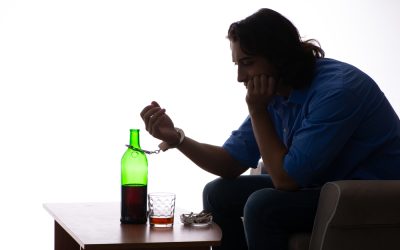You can think of it as time and energy you’re putting in a bank. Or you can think of it as a toolbox and consider what tools you have to help you in your healing. For example, your recovery capital can be coins, quotes, bracelets—anything that keeps you motivated in your recovery.
You Stop Prioritizing Recovery
Over 70% of people suffer from an alcoholic relapse in one year, according to a study on long-term relapse prevention strategies by Richard Appiah. Just because you’ve effectively avoided drinking and using only a drink does not make you cure. If you relapse after years of long-term sobriety you might have a hard time starting over. A sober life is far better than a life in passive compulsion. Recovering from a lifelong addiction can cost you a life too. Remember it’s much easier to stay i relapsed sober than get sober.
Stick With (or Revisit) Your Continuing Care Plan

If you are experiencing extreme overwhelm and hopelessness right now, you are at risk of relapse. When we start giving up the things that are good for us, we naturally gravitate back toward things that are not. In your early sobriety days, you had a whole new routine geared towards health and wellness down to a science. You used to be very gung-ho about this whole recovery thing.
For any and all suggestions, comments, or questions, please contact Mental Health America. However, relapse can be an opportunity to reset, develop clear needs and goals, and continue. Refocusing on recovery and further relapse prevention with a care team is crucial. This may vary from person to person and be influenced by things such as extent and length of use.
- If our loved ones feel like they are being criticized, they are less likely to be open and honest about whether they are on the verge of relapse or have already succumbed to it.
- At Uncover Counseling, we offer therapy and support to help you manage the emotional and psychological struggles that contribute to self-harm behaviors.
- In mental health, they involve the return of symptoms after a period of recovery.
- Substance abuse relapse occurs when a person who has attempted to stop using a substance begins to use it again.
You may even begin to feel as if it would be easier to give into your old habits and behaviors because starting recovery again seems too hard. Taking immediate action to get back onto your recovery path will prevent these negative habits from taking hold again. This list only scratches the surface of the many reasons why someone may relapse after drug or alcohol treatment. Often relapse occurs because of a combination of these and other reasons.

Understanding Peak Relapse Times: Why Do People Relapse?
The addiction recovery process after a relapse might be easier than early recovery. It would be best to look into detox at an inpatient treatment center for additional support and medical help. marijuana addiction Medical staff and other support people can help you deal with the physical and mental withdrawal symptoms.
Your detox after relapse depends on how long your relapse has occurred and how much you used. A physical relapse can be a brief “slip.” You might be at a party, and you have a drink to celebrate. Physical relapse is when you begin using substances or alcohol again. You might need to go back to your support system and admit that you need treatment again. Strong relationships provide accountability, encouragement, and emotional support during recovery.
- Cutting off such programs is a major cause of relapse.
- Include the names of everyone on your medical and support teams and how to contact them.
- These tips will help you get control of your addiction again instead of the other way around.
- Relapse is not a sign of failure–no matter how many times you relapse.
- They can also trigger memories of distressing or traumatic experiences.
What immediate steps should someone take after experiencing a relapse?
This means they need to use more to get the effect they got initially. By not using during treatment and recovery, their tolerance decreases. When they take their usual dose during a relapse, it could be too much and lead to an overdose.
That’s why sometimes you can go 1 month porn free, and other times, you can’t go more than 3 days. Your tank was filled to a greater amount that month you were porn free, even though you failed to refuel up. Whereas during your 3 day streak, your tank was already less than half way empty. When we find that internal drive, that superior motivation to begin doing something, we’re focused on that specific task at hand. Our minds are thinking about working out, eating healthier, studying more, quitting porn.
A lapse refers to a brief, short-term return to substance use, often managed quickly with a return to abstinence. In contrast, a full relapse is characterized by a significant return to previous levels of substance use, indicating a more severe setback in recovery. No material on this site, whether from our doctors or the community, is a substitute for seeking personalized professional medical advice, diagnosis or treatment. Never disregard advice from a qualified healthcare professional or delay seeking advice because of something you read on this website. What were your reasons for controlling or quitting the addictive behaviour? Reaffirm your long-term goals, values and the benefits of stopping to reignite your motivation to continue your recovery journey.

Maybe your energy levels are different, or you have new needs and boundaries. Maybe you want to pick up different hobbies, or restructure your relationships. There’s no wrong answer, as long as you stay present, honest with yourself, and focused on living a healthy life.
Utilize the lessons learned from the relapse to strengthen your commitment to a healthier and more fulfilling life. It’s important to remember that relapse often brings renewed understanding to an individual’s relationship with their recovery process. When an individual does their personal work to understand why the relapse occurred, they will gain new insight into the necessary changes to remain in lifetime recovery. Once you’ve identified the who, what, where, and why of your relapse, it’s a good idea to consider alternative actions you could have taken instead. This is an important part of developing your coping strategies.